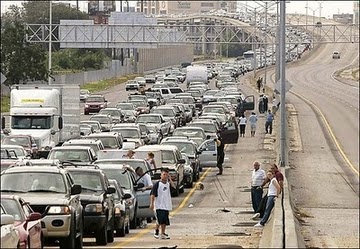Reliant Survival Gear
Yesterday, I spoke with a gentleman in New York who tried to educate me on preparedness. He mentioned so many different concerns, many of which were legitimate and some were just out there. With so much going on in our Nation and throughout the world at large, it’s tough to ignore so much writing on the wall.Now, let’s take that conversation into context: What if nothing happens? That’s exactly the question I’ll ask you. You, the prepared individual.
You, the prepper who purchases food to have in the event your employment situation loses its revenue temporarily, or a minor movement of the earth closes local markets and grocers. You, the healthy student of nutrition. You, the responsible parent who works to provide the necessities of life for your children and grandchildren and works to secure those ongoing needs. You, the involved citizen who talks with your neighbors and cares about the safety of your neighborhood. You, the owner of a vehicle who pays auto insurance for security against an undesired vehicular event. You, the purchaser of health insurance for a family whose health is fundamental and essential. You, the ardent securer of water storage, just in case another 5-day boil-water-alert happens this month. You, the consumer who also produces constructively while others are socially-secure thanks to your payroll contributions. You, whose money is lent to banks whose bail-outs secured enormous pensions. You, whose income tax returns without interest.
What if not one thing happens this year to drastically- or even minimally- inconvenience your lifestyle?
In the event that your storage of food, water, medical, and other resources remains unmoved out of necessity, then count yourself fortunate. This is what we hope for, although we’d be willfully ignorant to discredit the vulnerabilities of our current environments, local and global!
If your application of primitive or pioneer skills finds use within recreational or standard homestead practices instead of emergent necessity, then continue enjoying their practice in peace. Please carry on and experience the following in your endeavors to be self-reliant:
- the joy of cultivating your plants and harvesting the literal fruits (& vegetables) of your labor
- the satisfaction of knowing basic skills to make many of the leisurely staples such as flour, pasta noodles, sausage, buttermilk, cheese, bread, and so much more
- the stewardship of slaughter & butchery
- the responsible care and maintenance of firearms and useful weapons/tools
- the autonomy of filtering and purifying water for all-things-related to its supply and use
- the comfort of attending to basic medical issues, affording you the avoidance of over-crowded emergency waiting rooms, and unnecessary exposure to other contagious pathogens
- the peace of mind that your food is not unnaturally grown and crammed into compact living conditions
- the security that comes with protection against a failing economy and currency, through precious metals
- the integrity of enjoying life’s experience as a perpetual learner, an ever-studious pupil
- the unmatched fulfillment which attends precious family moments of teaching, learning, and sharing
- the limitless advantages of perpetual personal progress

And if nothing happens, we have the satisfaction of having prepared for when it does.
Every year people are affected by disasters. Lives are lost, property is destroyed and personal effects lost to the unforgiving aftermath of both natural and man-made disasters. The saddest part of such devastation is that most of it could have been averted with the proper preparation. Being prepared does not mean that one won't incur any loss, however, if one prepares properly, it can save lives, homes and personal affects. Proper preparation can also make recovery and dealing with insurance companies and government entities exponentially easier.
http://reliantsurvivalgear.com
https://plus.google.com/b/102804328098454647730/+Reliantsurvivalgear007
https://www.facebook.com/reliantsurvivalgear





